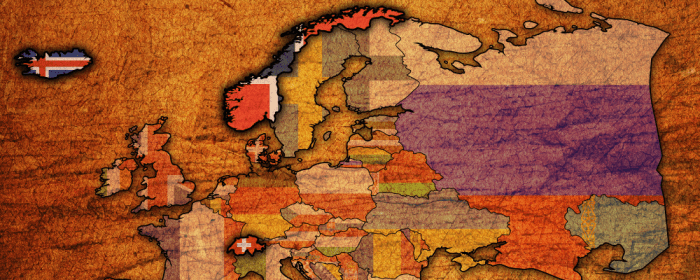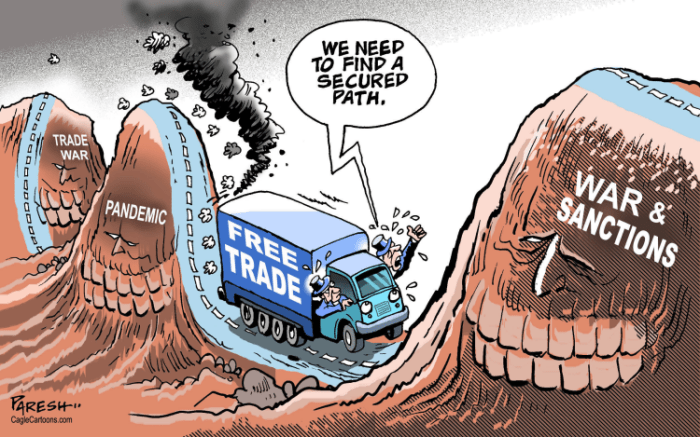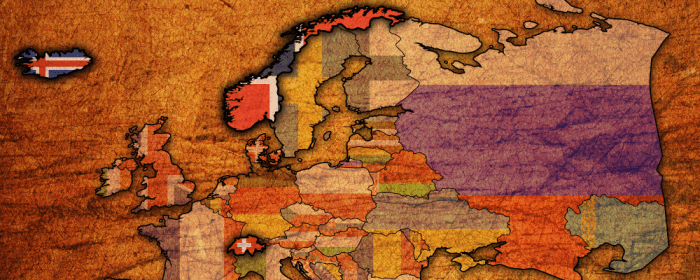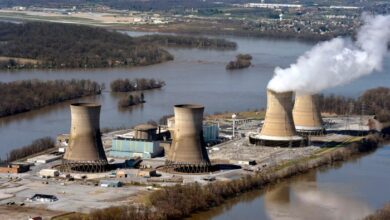
Criticisms of Current Forms of Free Trade: A Closer Look
Criticisms of current forms of free trade are gaining traction, as concerns about its impact on domestic industries, the environment, labor standards, and economic inequality are increasingly voiced. While free trade advocates often champion its potential for economic growth and prosperity, detractors argue that its benefits are not evenly distributed and that it can come at a significant cost to workers, communities, and the planet.
This blog post delves into the key criticisms of current forms of free trade, exploring the arguments put forward by those who believe that the system needs to be re-evaluated and reformed. We will examine the potential negative consequences of free trade agreements, including their impact on domestic industries, environmental sustainability, labor standards, and economic inequality.
We will also consider the trade-offs between free trade and national sovereignty, and explore potential solutions to mitigate the negative consequences of globalization.
Impact on Domestic Industries

Free trade, while often touted as a catalyst for economic growth and prosperity, can have a significant impact on domestic industries, particularly those facing intense competition from imports. While free trade can offer consumers lower prices and access to a wider range of goods, it can also lead to job losses, economic decline, and a shift in the industrial landscape.
The Impact of Free Trade on Domestic Industries
The potential negative consequences of free trade on domestic industries stem from the increased competition they face from cheaper imports. When domestic industries struggle to compete with lower-priced goods from abroad, they may experience a decline in sales, reduced profits, and ultimately, job losses.
One of the biggest criticisms of current forms of free trade is that it often leads to a race to the bottom, with countries lowering labor and environmental standards to attract investment. This can have devastating consequences for workers and the environment, and it can also contribute to the scale of the debt crisis as countries struggle to compete in a globalized economy.
Ultimately, the question is whether free trade truly benefits everyone, or if it simply exacerbates existing inequalities.
This can lead to a decrease in economic activity and a ripple effect across the broader economy.
Examples of Industries Impacted by Free Trade
Several industries have experienced negative consequences due to free trade agreements. For example, the textile industry in the United States has faced significant challenges due to competition from low-cost producers in countries like China and Vietnam. The manufacturing sector, particularly in industries like steel and automobiles, has also been affected by imports from countries with lower labor costs and relaxed environmental regulations.
Comparing the Impact of Free Trade on Developed and Developing Countries
The impact of free trade on industries varies significantly between developed and developing countries. In developed countries, industries may be more resilient due to their access to advanced technology, skilled labor, and established infrastructure. However, they may still face challenges from emerging economies with lower labor costs.
In developing countries, free trade can provide opportunities for economic growth by allowing them to export goods and services to larger markets. However, they may also face challenges from competition from developed countries with more advanced technology and infrastructure.
Environmental Concerns
The rise of free trade and globalization has brought about numerous benefits, but it has also raised concerns about its environmental impact. Increased trade often leads to a surge in transportation, production, and consumption, all of which can contribute to environmental degradation.
Environmental Consequences of Increased Trade
The increased transportation of goods across borders can lead to a significant increase in greenhouse gas emissions. Air travel, shipping, and road transport all contribute to carbon emissions, exacerbating climate change. Moreover, the production of goods for export often involves the use of resources that are not sustainably managed, leading to resource depletion.
The extraction of raw materials, such as minerals, timber, and fossil fuels, can damage ecosystems and displace local communities.
While free trade advocates tout its benefits, critics point to the widening gap between rich and poor nations, exacerbated by exploitative labor practices and environmental degradation. The IMF and World Bank protests in Washington D.C. highlight these concerns, with activists demanding fairer trade policies that prioritize social and environmental justice.
Ultimately, the debate surrounding free trade centers on finding a balance between economic growth and the well-being of people and the planet.
Incentivizing Environmental Degradation
Free trade agreements can incentivize companies to relocate production to countries with weaker environmental regulations. This phenomenon, known as “pollution havens,” occurs when companies seek to minimize their production costs by taking advantage of lax environmental standards in developing countries.
One of the biggest criticisms of current forms of free trade is that it often leads to exploitation of workers and resources in developing countries, creating a cycle of poverty and inequality. This can also contribute to political instability and even armed conflict, as seen in many parts of the world.
For example, the US, a major proponent of free trade, has been directly involved in armed conflicts around the world , often in regions where the pursuit of resources and profits has fueled instability. Ultimately, this reinforces the critique that free trade, when implemented without proper regulations and safeguards, can have devastating consequences for those most vulnerable.
As a result, these countries often bear the brunt of the environmental damage, while the benefits of trade flow to developed nations.
Industries Contributing to Environmental Degradation
Several industries have been linked to environmental degradation due to increased trade. The fashion industry, for example, is notorious for its high carbon footprint and its reliance on unsustainable practices like deforestation and water pollution. The mining industry, driven by global demand for raw materials, has also contributed to environmental degradation through habitat destruction and pollution.
The agricultural industry, with its reliance on intensive farming practices and the transportation of food across vast distances, has been linked to soil erosion, water depletion, and biodiversity loss.
Initiatives to Mitigate Environmental Impact, Criticisms of current forms of free trade
Recognizing the environmental challenges posed by free trade, several initiatives and policies have been implemented to mitigate its impact. Some countries have adopted stricter environmental regulations and standards to ensure sustainable production practices. Others have implemented carbon tariffs on imported goods to incentivize cleaner production methods.
International organizations like the World Trade Organization (WTO) have also worked to incorporate environmental concerns into trade agreements. For example, the WTO’s Agreement on Trade-Related Investment Measures (TRIMs) allows countries to regulate foreign investment to protect their environment.
Labor Standards and Exploitation

Free trade, in theory, aims to promote economic growth and prosperity for all participating nations. However, critics argue that the pursuit of free trade can lead to the exploitation of workers, particularly in developing countries with weaker labor standards. This concern stems from the potential for companies to exploit lower wages and lax regulations in these countries, leading to unfair labor practices and a decline in workers’ rights.
The Potential for Labor Exploitation
The potential for labor exploitation arises from the disparity in labor standards between developed and developing countries. Companies often seek to minimize production costs by relocating their operations to countries with lower wages, weaker labor laws, and fewer worker protections.
This can create a situation where workers in developing countries are forced to accept low wages, long working hours, and unsafe working conditions to compete in the global market.
Ethical Concerns Related to Outsourcing
Outsourcing production to countries with poor working conditions raises significant ethical concerns. Companies are criticized for profiting from the exploitation of workers, while consumers may be unknowingly contributing to these practices by purchasing products manufactured in such environments. This raises questions about the responsibility of companies to ensure ethical sourcing and fair labor practices throughout their supply chains.
Examples of Labor Exploitation Linked to Free Trade
Numerous instances have highlighted the potential for free trade to contribute to labor exploitation.
- In the garment industry, workers in countries like Bangladesh and Cambodia have faced low wages, long working hours, and unsafe working conditions, often leading to accidents and fatalities. The Rana Plaza factory collapse in Bangladesh in 2013, which killed over 1,100 garment workers, tragically illustrated the risks faced by workers in the global supply chain.
- The electronics industry has also been linked to labor exploitation, with reports of workers in China and other Asian countries facing forced overtime, unsafe working conditions, and the use of child labor. The Apple supply chain, in particular, has faced scrutiny over its labor practices in China.
Role of International Organizations in Promoting Fair Labor Standards
International organizations play a crucial role in promoting fair labor standards in the context of free trade.
- The International Labour Organization (ILO) sets international labor standards and promotes their implementation through conventions and recommendations. The ILO’s core labor standards address fundamental principles and rights at work, including freedom of association and the right to collective bargaining, the elimination of forced labor, the abolition of child labor, and the elimination of discrimination in employment and occupation.
- The World Trade Organization (WTO) has incorporated labor standards into its agreements through the “social clause” debate, which seeks to ensure that trade liberalization does not undermine labor rights. However, the WTO’s role in promoting labor standards remains controversial, with some arguing that it should play a more active role in enforcing labor rights.
Economic Inequality and Social Disparities: Criticisms Of Current Forms Of Free Trade
Free trade, while often touted as a driver of economic growth, has been criticized for its potential to exacerbate existing economic inequalities both within and between nations. While it can generate benefits for certain groups, it can also disproportionately impact others, leading to social disparities and unrest.
Impact of Free Trade on Economic Inequality
The potential for free trade to exacerbate economic inequality is a significant concern. When countries engage in free trade, they often face competition from cheaper labor and production costs in other countries. This can lead to job losses in industries that are unable to compete, particularly in sectors with low-skilled labor.
The resulting unemployment can contribute to income inequality within the affected countries.
For instance, the shift of manufacturing jobs from developed countries to developing countries with lower labor costs has been linked to rising income inequality in the developed world.
Furthermore, free trade can also benefit certain groups within a country while disproportionately impacting others. For example, multinational corporations with access to global markets can benefit significantly from free trade, while smaller businesses and local producers may struggle to compete.
This can create a concentration of wealth and power in the hands of a few, further exacerbating economic inequality.
Social Disparities and Unrest
The widening economic gap between the rich and the poor can lead to social unrest and instability. When individuals feel that the benefits of free trade are not being shared equitably, they may become disillusioned with the system and resort to protests or other forms of social unrest.
The 2011 Arab Spring uprisings, which were sparked by economic grievances, are a stark example of how economic inequality and social disparities can lead to widespread unrest.
Policies and Initiatives to Address Social Consequences
Recognizing the potential for free trade to exacerbate economic inequality and social disparities, various policies and initiatives have been proposed to address these concerns.
- Trade Adjustment Assistance Programs:These programs provide financial and training support to workers who lose their jobs due to trade liberalization. This helps them transition to new careers and mitigate the negative economic impact of free trade.
- Labor Standards and Fair Trade Agreements:Incorporating labor standards into trade agreements can help ensure that workers in developing countries are not exploited and that their rights are protected. This can contribute to a more equitable distribution of the benefits of free trade.
- Progressive Tax Policies:Progressive tax policies, where higher earners pay a larger percentage of their income in taxes, can help redistribute wealth and reduce income inequality. This can help mitigate the negative social consequences of free trade.
- Investment in Education and Skills Development:Investing in education and skills development can help workers adapt to the changing demands of the global economy and compete in the labor market. This can help reduce unemployment and income inequality.






